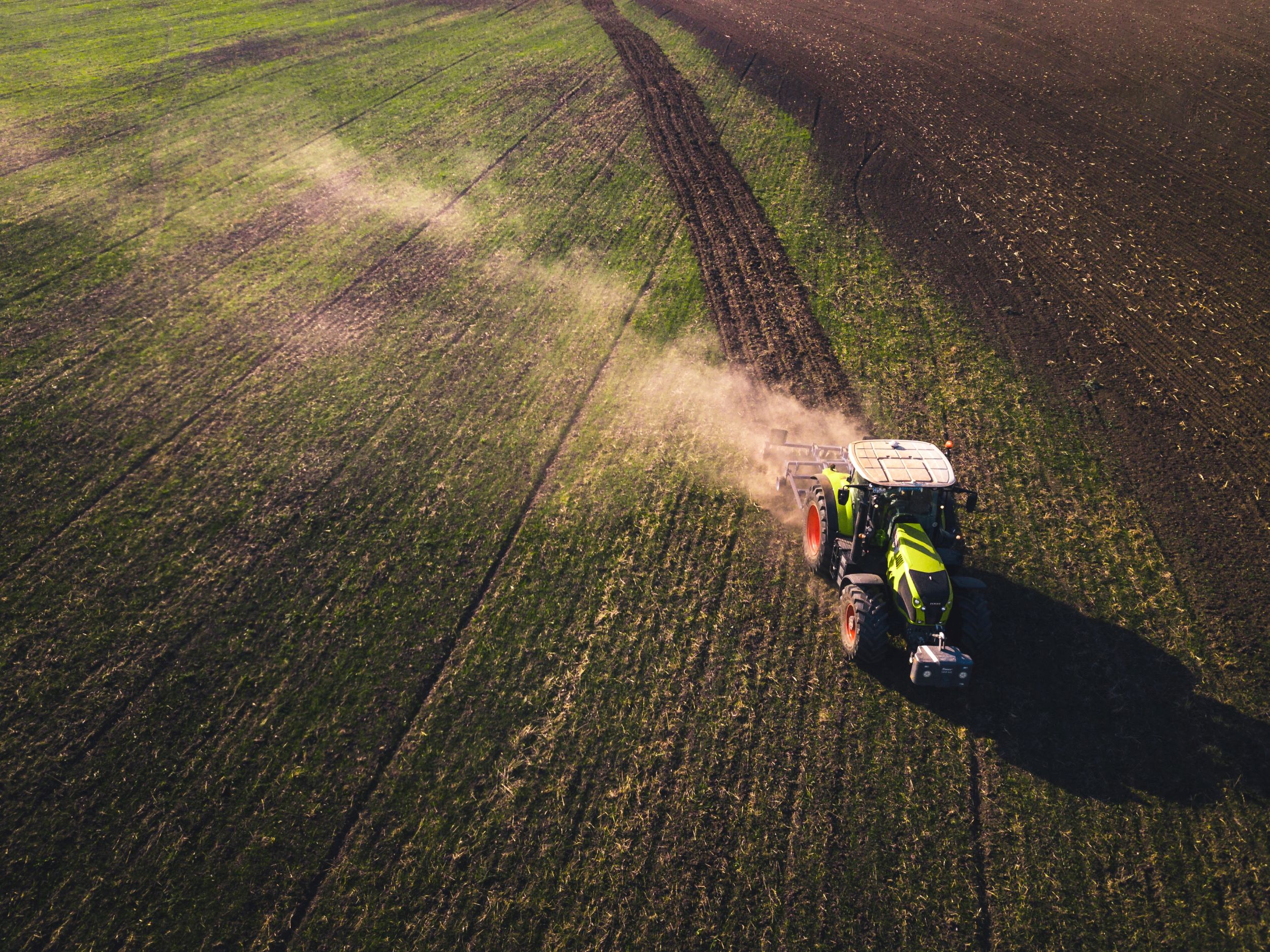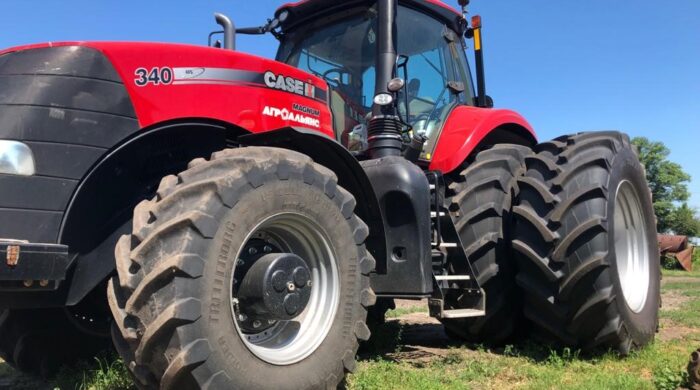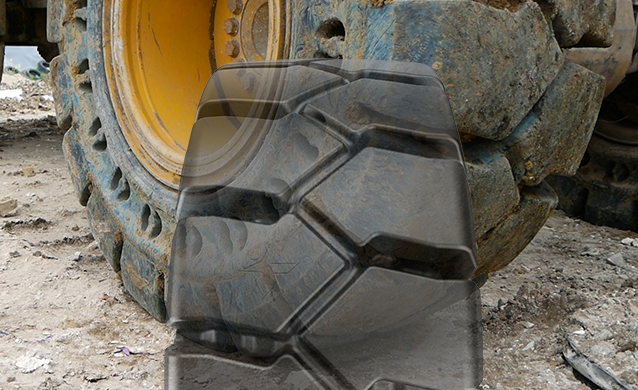
IF/VF Tire Construction compared to Standard Tire – what is difference? Air pressure, weight carrying capacity, carcass construction, width & length of footprint, and what specific benefits should producer expect to receive? What does Cyclic Field Operation (CFO or CFO+) additional stamping indicate?
On average, agricultural tires tend to operate between +16-20 psi for MFWD or 4WD tractors working in the field, about +25 PSI for combine harvesters, and above +60 PSI on self-propelled sprayers. The development of IF (increased flexion) and VF (very increased flexion) technology is allowing working air pressures to be lowered significantly delivering improved performance and better crop yields. The structural design and capability of modern tires impact how much air pressure is required to carry the intended axle load.
All radial tire casing structures from nylon to steel chords with its inherent rubber layers only carry 20% of the actual intended load with the compressed air accounting for 80% of the carrying capacity. This is true in any radial tire application, from passenger vehicle tires to the largest giant OTR mining tires. The advent of IF & VF technology is rewriting the rules by giving the structural components a larger impact on the carrying capacity. Transferring the axle load carrying responsibility away from the compressed air and increasing the weight-bearing function back to both the casing and rubber materials. IF and VF technology tires are evolved products that use improved rubber compounds and higher tensile strength cables or chords to achieve the load, speed, heat resistance, and endurance that can be demanded in their work applications or conditions.
The below visual examples of a 520/85R42 on a harvester (dualled application) drive or front axle display the effect of air pressure, tire casing deflection, and tire footprint or gross flat plate between a standard, IF, or VF tire and their benefits:
For agricultural tires, whether using IF or VF technology tires farmers can either significantly lower air pressure without compromising the carrying capacity of the tire or increase the weight carried with the same tire footprint (same gross flat plate). Both technologies allow farmers to achieve better yields or greater productivity in the field with heavier or faster machinery.
VF tire technology construction uses quite different casing and rubber materials to achieve the benefits listed above by delivering the below product solutions versus standard tire construction:
- VF tires provide the greatest load carrying or axle load capacity at standard air pressures as needed.
- When operated at -40% air inflation pressures, VF tires will reduce soil compaction improving crop yields due to the larger tire footprint and increased flotation over the soil resulting in lower ground pressure.
- VF tires are designed to operate safely with a higher heat resistance of the casing despite -40% lower air pressure on the road or in the field.
- The ability to lower air pressures also improves the ride and with a greater contact patch (or flotation) the traction improves the overall machine stability on the road or in the field.
- VF tire pressures when operating at -40% air inflation also greatly enhance both traction and stability when on sloped or steep fields.
- The above conditions are matched on IF technology tires except the benefits are only 20% greater than standard tires.
The above +100 HP machinery-producing OEMs have adopted and will continue to add IF or VF technology tires in their product offer as the quest for increased productivity, greater yields, and faster food production continues to run in parallel with greater machinery weight and increased engine horsepower. In most cases, the greatest enemy of a tire is the corresponding heat generation on the tire casing that occurs as machines get heavier carry greater axle loads and operate faster. For example, the current transition in the market to larger combine harvesters evolving from class 9 to class 10 size machinery designed with greater horsepower is increasing the demand or use of tires that can offer CFO or Cyclic Field Operation capability. In essence, a CFO-engineered tire whether developed as a Standard, IF, or VF product must be able to withstand continuous dynamic loads in the field. Specifically, CFO tires are working in repetitive cycles during the harvest season with tire loads increasing and decreasing dramatically in a very quick period from light loads to heavy loads as the harvester works the field filling or emptying its on-board bin. A CFO-rated tire therefore must be capable of flexing under extreme working conditions at specific air pressures without compromising performance, traction, productivity, or soil compaction. IF or VF tire technology provides the best viable solutions to CFO or Cyclic Field Conditions as their construction materials have been engineered to provide the endurance, casing integrity, and air pressure capability to withstand both the changing load and corresponding heat generation without compromising performance.
MAXAM has developed cyclic load capability in our AGRIXTRA H family of large-volume flotation tires to meet the CFO engineering requirements as super single tire solutions for the combine-harvester market. Our current steel belted AGRIXTRA H product range has been engineered to ensure the optimal contact patch to help reduce ground pressure or soil compaction without compromising the steering or driving capability of the tire. MAXAM will be developing additional VF tires in the coming years in all our agricultural products offered with improved CFO capability to meet the global growing demand for higher load and speed capability. In addition, MAXAM will also employ our new Ecopoint rubber compound technology to rewrite the tire endurance rules and deliver value-centered products that will exceed both OEM and farmer or grower expectations.



